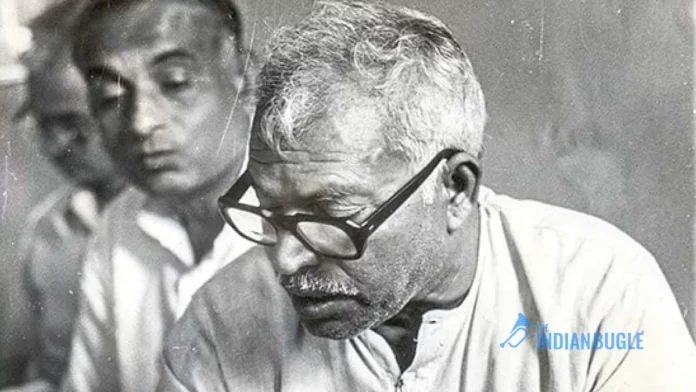Late Karpoori Thakur, former Chief Minister of Bihar, is set to be posthumously honored with the prestigious Bharat Ratna, India’s highest civilian award. The announcement was made through a release from Rashtrapati Bhavan, confirming the decision by the President to confer this esteemed recognition on Thakur.
Who is Karpoori Thakur?
Karpoori Thakur, a prominent figure in Bihar’s political history, was a devoted socialist leader with a deep commitment to uplifting the backward classes in the state. Serving as the Chief Minister of Bihar from 1977 to 1979, Thakur played a pivotal role in implementing the recommendations of the Mungeri Lal Commission, ensuring reservation benefits for the Other Backward Classes (OBCs).
Thakur’s unwavering dedication to social justice and inclusive development left an enduring mark on India’s socio-political fabric. Born in Samastipur district, Bihar, he actively participated in the Quit India Movement during the struggle for independence. Thakur’s political journey was marked by consistent victories in elections due to his modest lifestyle and resolute commitment to promoting social equality.
Prime Minister Narendra Modi expressed his delight at the decision to confer the Bharat Ratna on Karpoori Thakur, highlighting his role as a beacon of social justice and equality. PM Modi emphasized that this recognition serves as a testament to Thakur’s enduring efforts on behalf of the marginalized and his steadfast commitment to empowerment.
मुझे इस बात की बहुत प्रसन्नता हो रही है कि भारत सरकार ने समाजिक न्याय के पुरोधा महान जननायक कर्पूरी ठाकुर जी को भारत रत्न से सम्मानित करने का निर्णय लिया है। उनकी जन्म-शताब्दी के अवसर पर यह निर्णय देशवासियों को गौरवान्वित करने वाला है। पिछड़ों और वंचितों के उत्थान के लिए कर्पूरी… pic.twitter.com/hRkhAjfNH3
— Narendra Modi (@narendramodi) January 23, 2024
Karpoori Thakur’s Struggle for Social Justice
Thakur’s advocacy extended beyond his political career, as he actively fought for the rights of marginalized communities, including scheduled castes, scheduled tribes, and other backward classes. The announcement of the Bharat Ratna for Thakur comes just before his 100th birth anniversary on January 24, a fitting tribute to his legacy.
Biography of Karpoori Thakur
Karpoori Thakur, born in the village of Pitaunjhia (now Karpuri Gram), Samastipur District, Bihar, was deeply influenced by nationalistic ideas from a young age. He actively participated in the Quit India Movement, spending 26 months in prison for his role in the struggle for independence.
As a teacher, Thakur became a member of the Bihar Vidhan Sabha in 1952. His commitment to social causes led to his arrest during the general strike of Central Government employees in 1960. Serving as the Chief Minister of Bihar, he implemented progressive measures, including the removal of English as a compulsory subject for matriculation, a move aimed at promoting Hindi language.
Thakur’s dedication to social justice faced challenges within his own party, leading to his resignation in 1979. Despite the obstacles, he remained a champion of the poor, introducing reservation policies for backward classes in government jobs in 1978.
Thakur’s influence extended beyond his political career, serving as the President of the Samyukta Socialist Party and mentoring future Bihar leaders such as Lalu Prasad Yadav, Ram Vilas Paswan, Devendra Prasad Yadav, and Nitish Kumar.
In conclusion, the posthumous conferment of the Bharat Ratna on Karpoori Thakur reflects the acknowledgment of his exceptional contributions to social justice and empowerment, solidifying his place as a revered figure in India’s political history.
